Never build your emotional life on the weaknesses of others
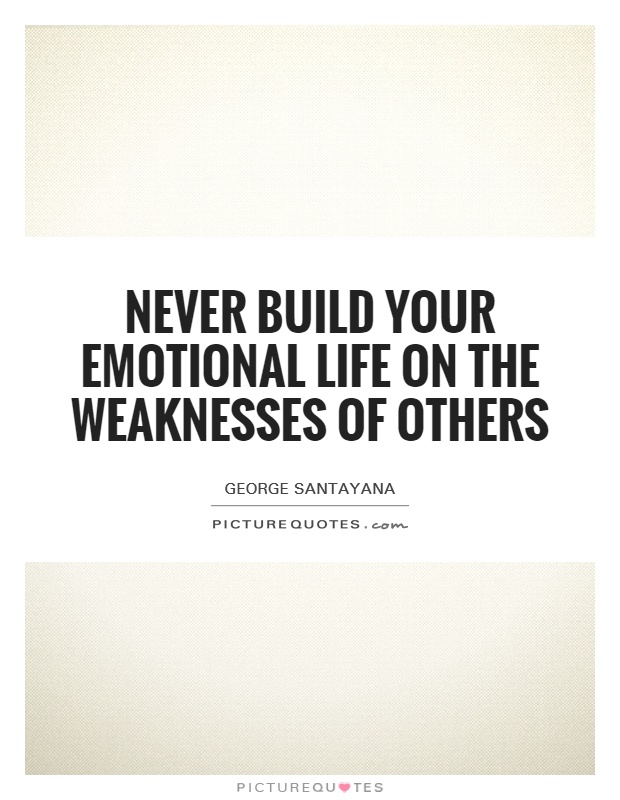
Never build your emotional life on the weaknesses of others
George Santayana, a renowned philosopher and essayist, once said, "Never build your emotional life on the weaknesses of others." This statement holds profound wisdom and insight into the nature of human relationships and emotional well-being. Santayana's words remind us of the importance of cultivating our own emotional strength and resilience, rather than relying on the shortcomings or vulnerabilities of others for our own sense of security or validation.Building our emotional life on the weaknesses of others can be a dangerous and unsustainable foundation. When we derive our sense of self-worth or happiness from the flaws or failings of those around us, we are essentially placing our emotional well-being in the hands of others. This can lead to a cycle of dependency and insecurity, as our own happiness becomes contingent on the weaknesses or struggles of those we are relying on.
Furthermore, building our emotional life on the weaknesses of others can also be damaging to our relationships. It can create a dynamic of manipulation or exploitation, where we are using the vulnerabilities of others to prop up our own sense of self. This can erode trust and intimacy in our relationships, as the other person may feel used or taken advantage of.
Instead, Santayana's words encourage us to cultivate our own emotional strength and resilience. This means taking responsibility for our own happiness and well-being, rather than relying on external sources for validation or security. It means developing healthy coping mechanisms and self-care practices that allow us to navigate life's challenges with grace and resilience.
By focusing on our own emotional growth and development, we can build a solid foundation for our relationships and our own well-being. We can approach others with empathy and compassion, rather than seeking to exploit their weaknesses for our own gain. We can create relationships based on mutual respect and support, rather than dependency and manipulation.
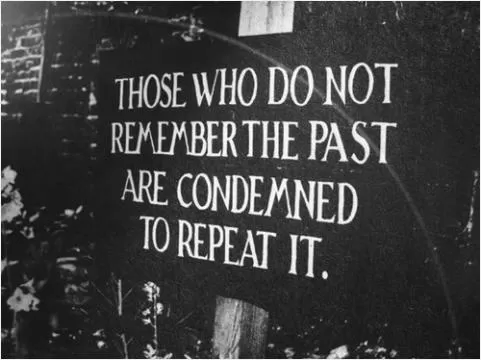

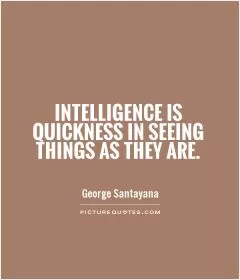
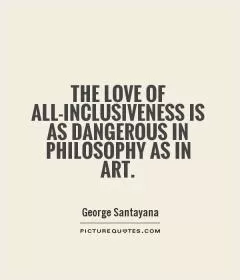

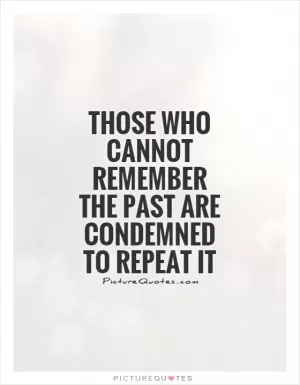

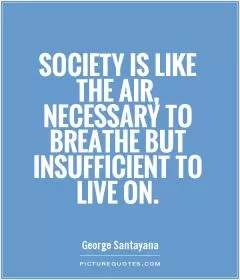




 Friendship Quotes
Friendship Quotes Love Quotes
Love Quotes Life Quotes
Life Quotes Funny Quotes
Funny Quotes Motivational Quotes
Motivational Quotes Inspirational Quotes
Inspirational Quotes